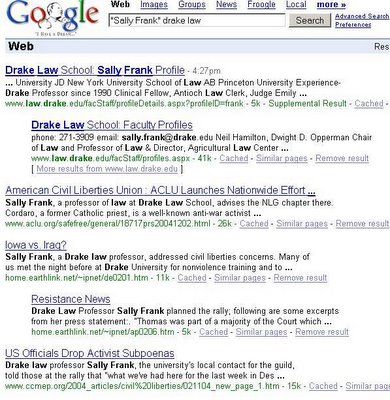But now he's shown some real nerve by defying one of his moneyed backers. From the WHO-TV website:
Bill Krause is one of the Republican party's biggest activists and biggest donors. He may also have the most to lose if lawmakers ban Touchplays. Krause is the founder and owner of the Kum N Go convenience store chain. The lottery says 205 of his stores have Touchplays. Records show Krause also founded a distribution company call Royal Financial. That company distributes nearly 1,500 Touchplays to stores all over the state. So Krause makes money on two fronts. He makes money from distribution of the Touchplay machines. Plus, he makes money the machines bring in to the Kum N Go stores. Krause had supported Jim Nussle for governor. Records show he and his son have donated about 25-thousand dollars to Nussle's campaign.
All that stuff about how the video lottery terminals keep small businessmen solvent, that just cracks me up. Little guys like Kum N Go, with 205 stores with slot machines, and Hy-Vee, with 194 stores in seven states.
I didn't think Nussle had it in him. It's a great sign that he didn't take some wishy-washy middle ground. Still, as bad as they are, even the slot machines are a side issue in the big scheme of things. If Nussle shows he's serious about cutting the bloated state government and rewriting the corporate welfare spigot that serves as our state tax system, suddenly the election will be worth getting excited about.
(Hat tip: State 29)

